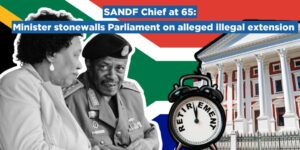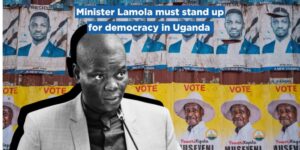The following speech was delivered in Parliament today by DA Shadow Minister of Transport, Manny de Freitas MP, during the debate on urgent matter of national public importance: escalating fuel prices.
An important and substantial component of the fuel price are the additional fuel levies. These fuel levies are mainly in the form of two indirect taxes: the General Fuel Levy, and the Road Accident Fund (RAF) Levy. As always, the fuel price increases (we have had 6 this year thus far) hurt the poorest of the poor as fuel price increases are recovered by passing them on to consumers.
Another consideration is that increases to fuel prices impacts on transport across the country as operators seek to recover the increases by again passing these on to consumers. In other words, more expensive fuel means more expensive transport and goods for consumers.
The General Fuel Levy is a tax charged on every litre of petrol sold and already stands at well over R3.00 a litre. The money collected through this tax is administered by National Treasury, and is treated as a general tax and not, as many people assume, for road-related expenses.
Money collected through the RAF Levy portion of every litre of petrol sold is used to fund the “technically insolvent” Road Accident Fund, which uses the money to compensate victims of road accidents. In 2016, the RAF Levy was R1.54 (unchanged from 2015). In 2017 it rose by nine cents to R1.63. This year the RAF Levy increase have reached a sizable 30 cents plus and now stands at over R1.93 a litre. This means that in the last 10 years alone the RAF portion has increased by over 330%.
The RAF receives almost 12% of the petrol price; that’s up from 6% only 10 years ago. In 2017, the RAF reported that it was R34.7 billion in the red. Compare this to the R33.3 billion it received from the fuel tax that same year, one starts asking questions about its “technical insolvency”.
As if this isn’t enough, the Department of Transport and the RAF are currently ramming the Road Accident Benefit Scheme (RABS). And a scheme it indeed is! Not only will we continue to fork out more money from the fuel levy to prop up RAF but once the RABS becomes law it will benefit the road victim superiorly less than it is now.
Once RABS becomes law, anyone person younger than 18 making a claim will cease to receive benefits once they reach the age of 18. And if you think your grandmother can claim when she gets knocked over by a car, then think again. RABS ensures that anyone older than 65 will be guaranteed of not receiving any benefits whatsoever.
But this isn’t the worst issue. In future we will not only pay more and receive less, but those that shouldn’t receive anything at all, will. RABS is a no-fault system. The RABS Bill proposes that anyone claiming from RABS would not require to prove if a vehicle crash was caused by any party involved in that crash. This means that even if an accident was caused by a person, that person will still be able to claim from the proposed RABS.
To put it bluntly, a drunk driver can repeatedly cause accidents and even kill people involved in a crash and will be able to claim from RABS. In other words, a drunk driver would be rewarded for driving under the influence of alcohol.
I know this sounds unbelievable, but it’s true! So essentially this government and the ANC have no problem with drinking and driving.
So there you have it folks, we the taxpayer are expected to pay more so that road lawlessness can flourish and even be encouraged. Somehow the ANC seem to think this is all ok.
So if you thought the fuel levy was just about the increased cost of goods, it is also about creating and encouraging another form of crime. In this case, traffic related crimes.




